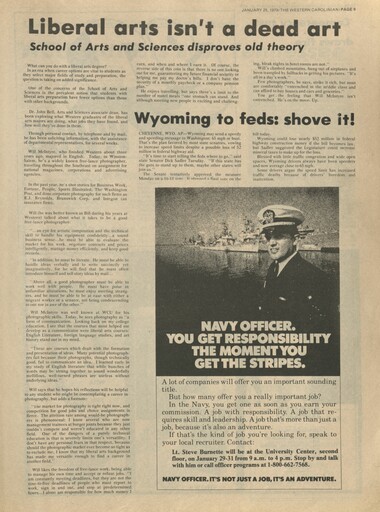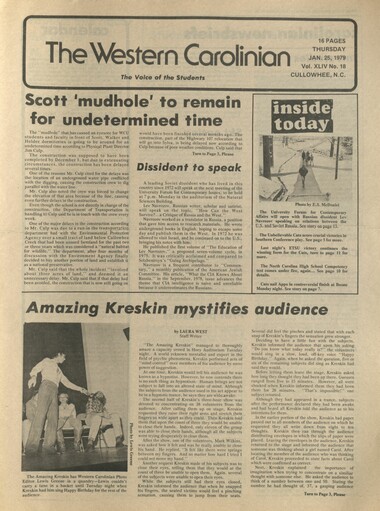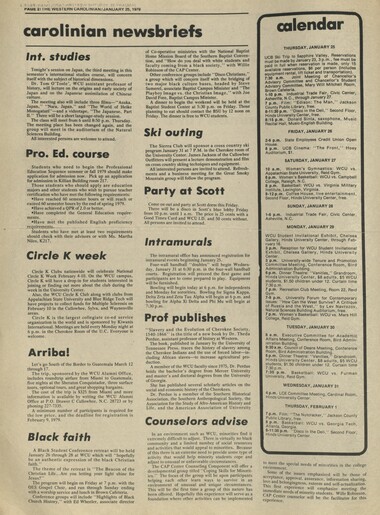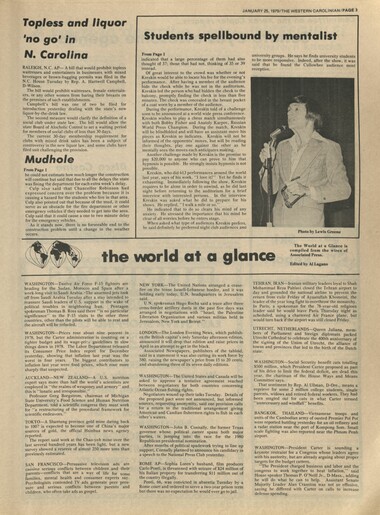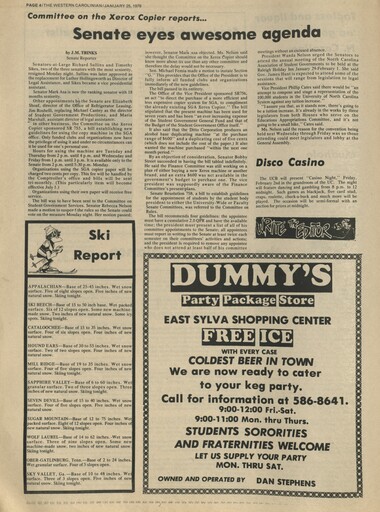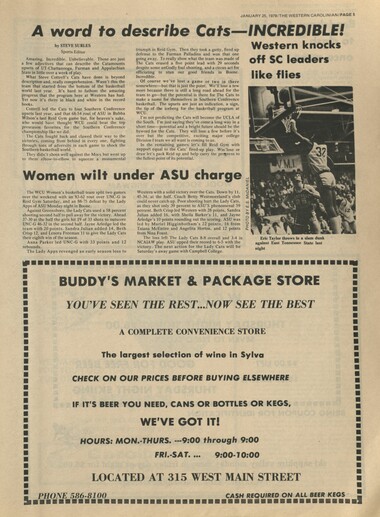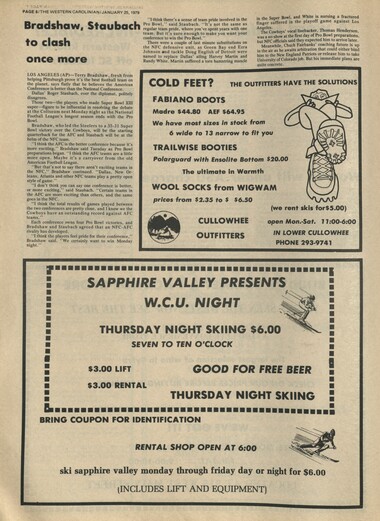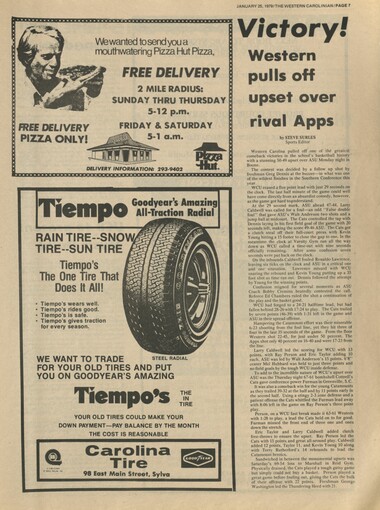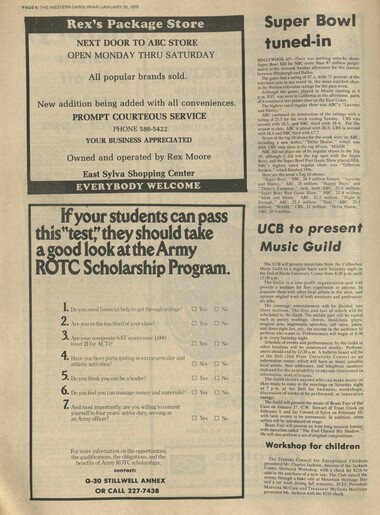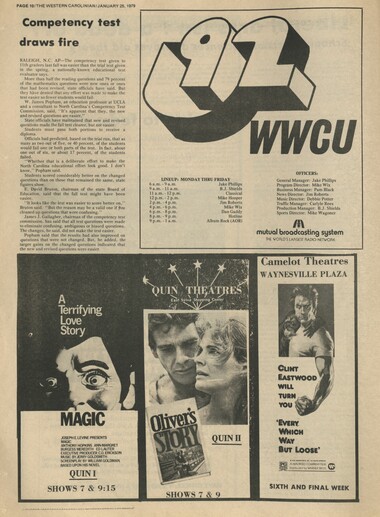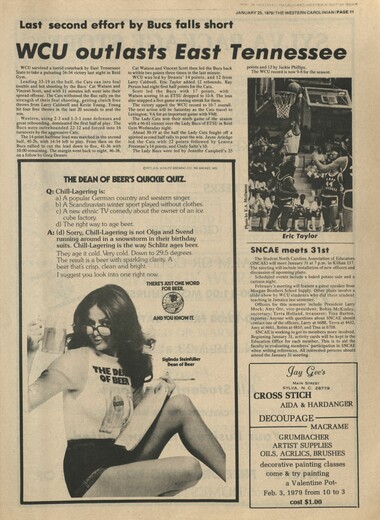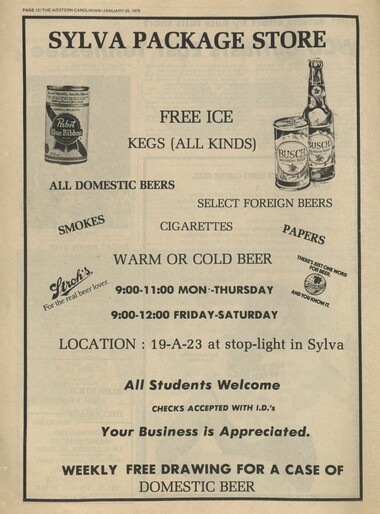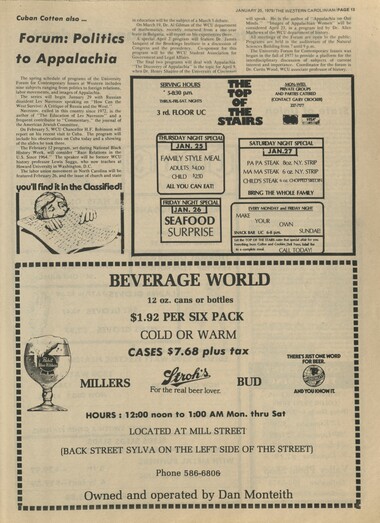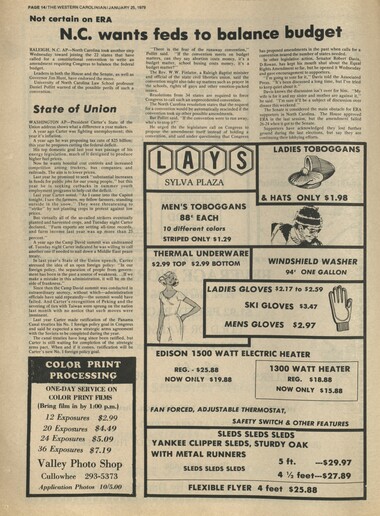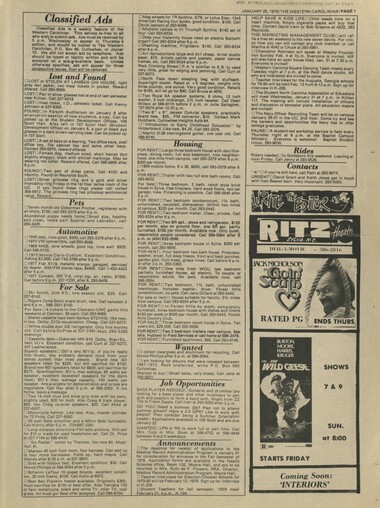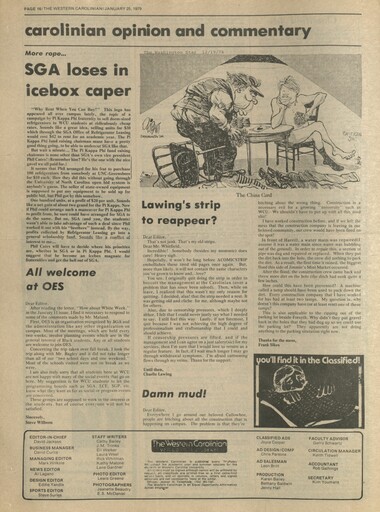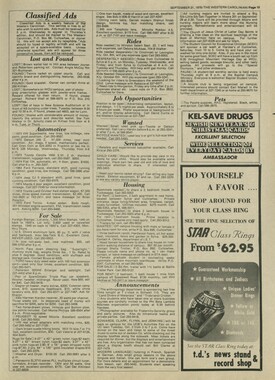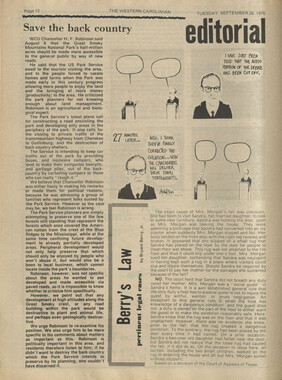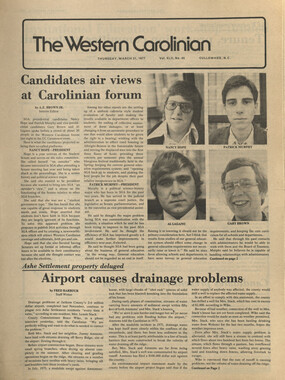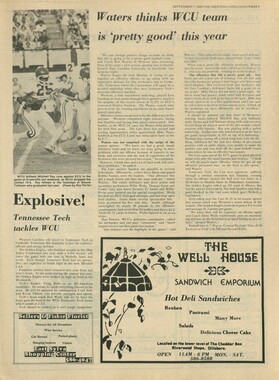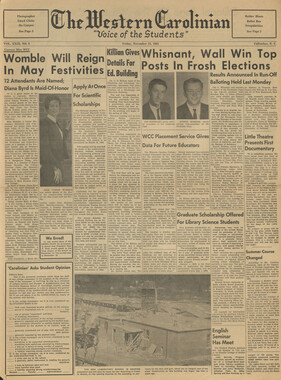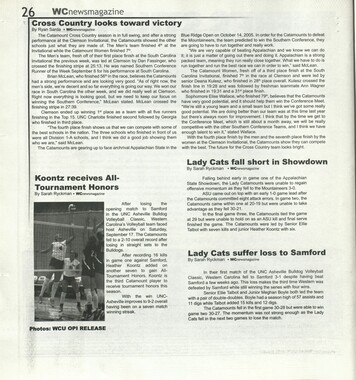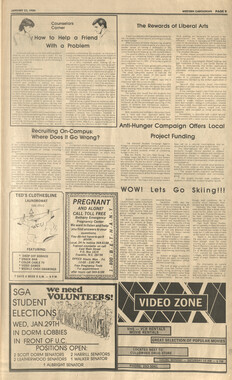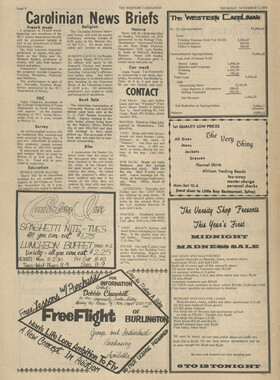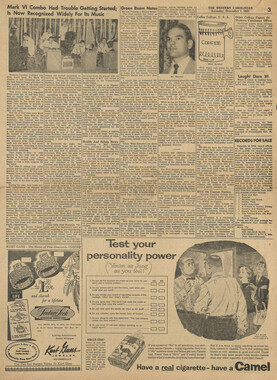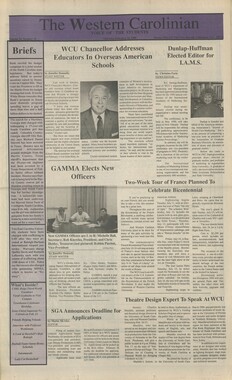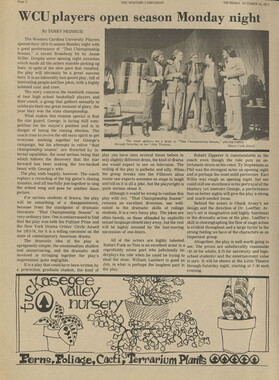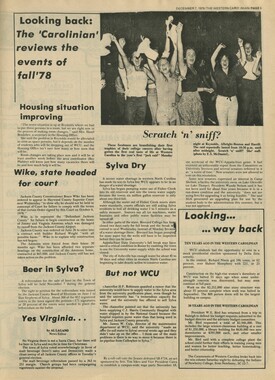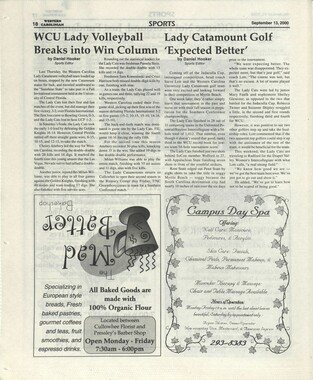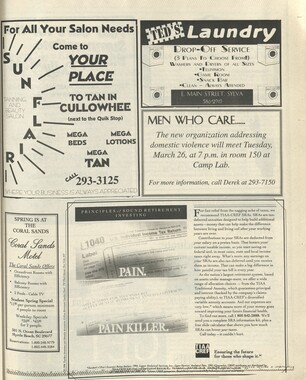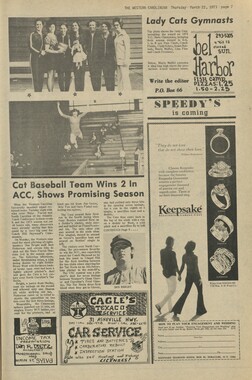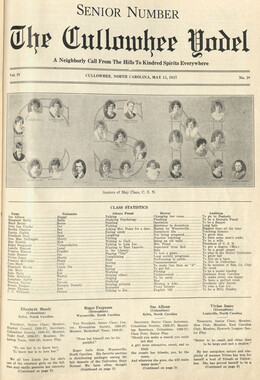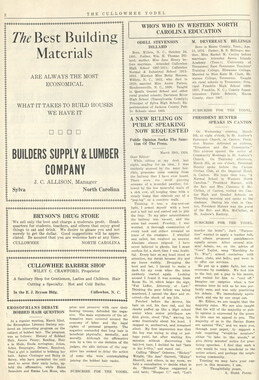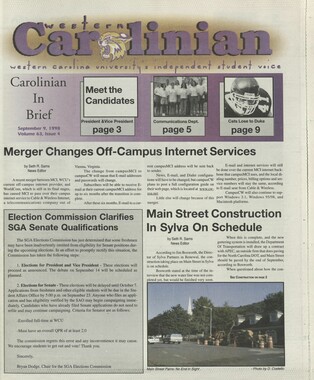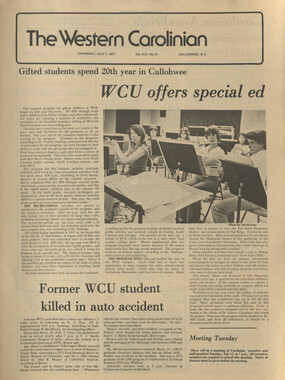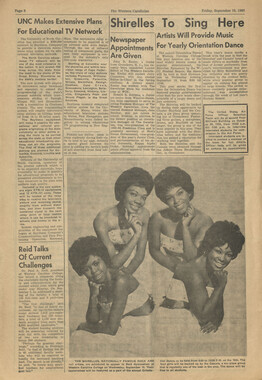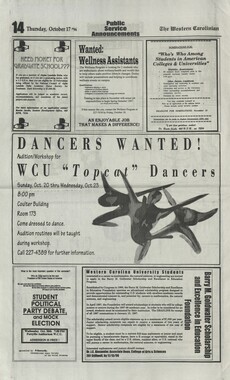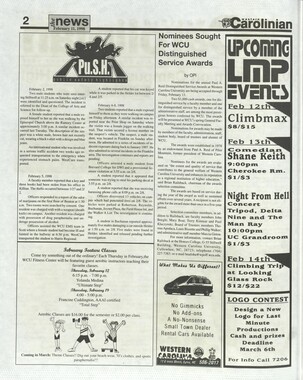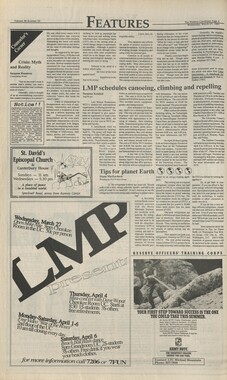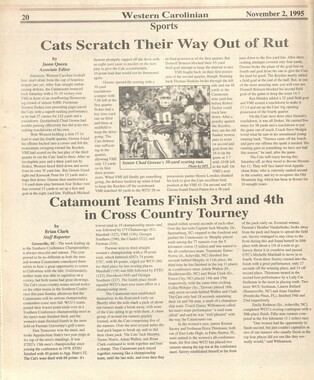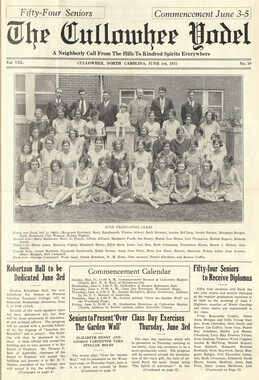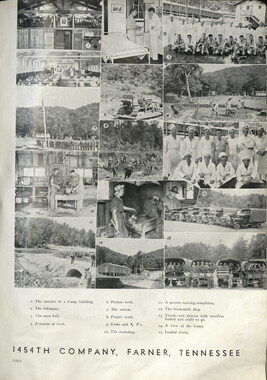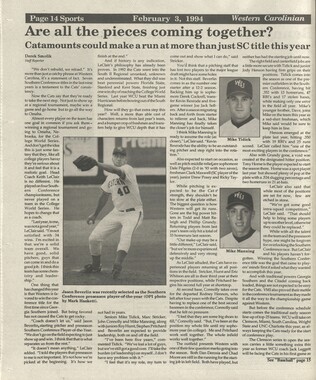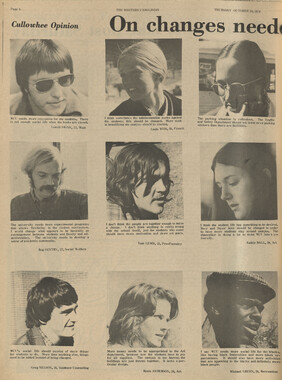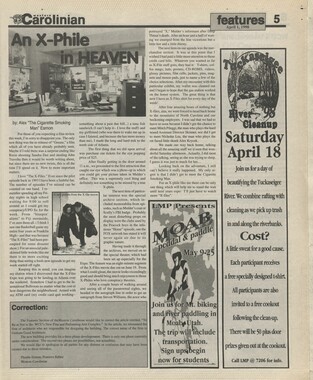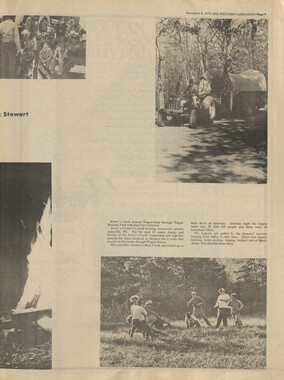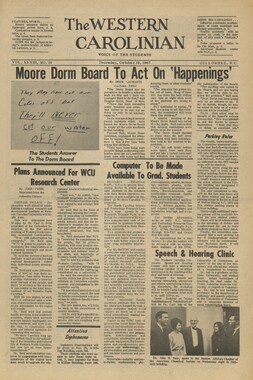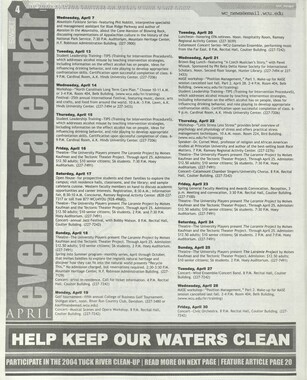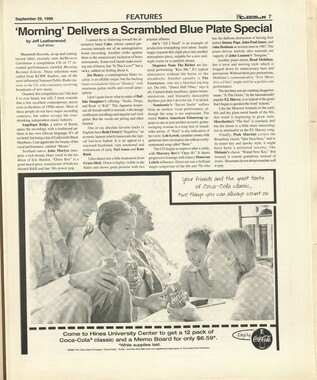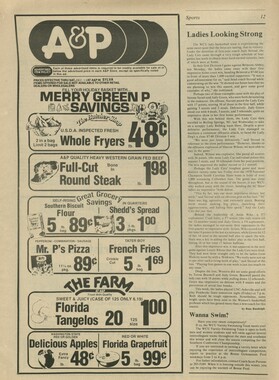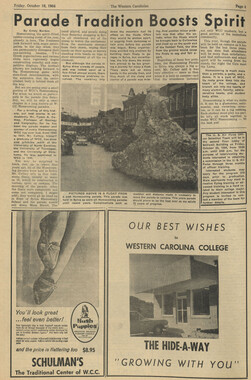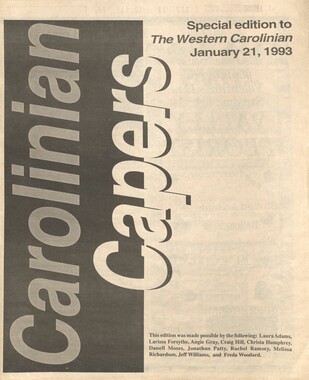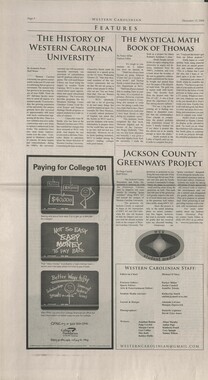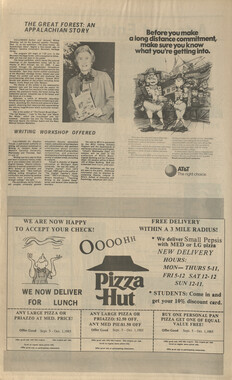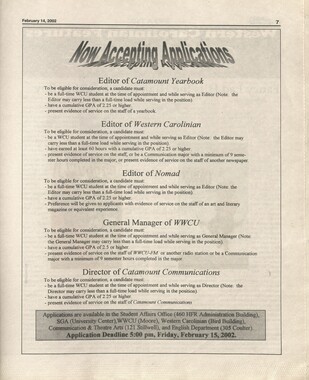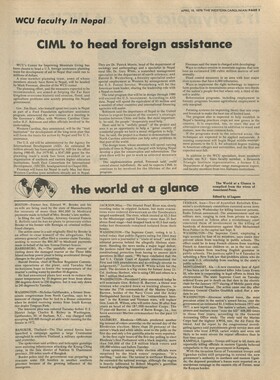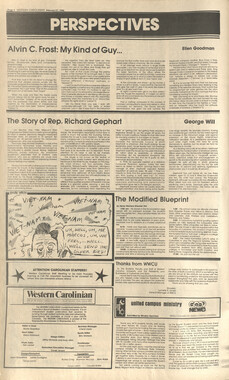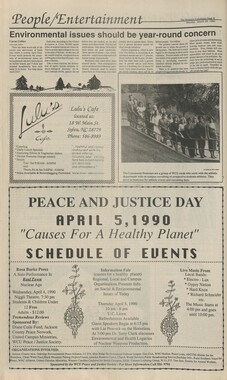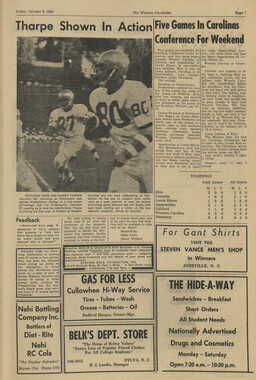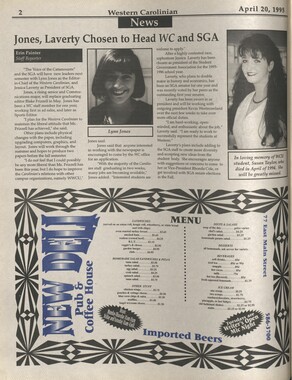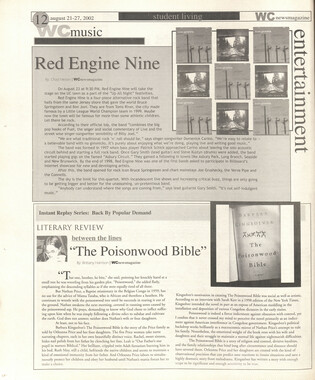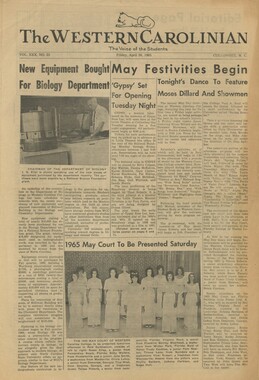Western Carolina University (21)
View all
- Canton Champion Fibre Company (2308)
- Cherokee Traditions (291)
- Civil War in Southern Appalachia (165)
- Craft Revival (1942)
- George Masa Collection (137)
- Great Smoky Mountains - A Park for America (3182)
- Highlights from Western Carolina University (422)
- Horace Kephart (998)
- Journeys Through Jackson (159)
- LGBTQIA+ Archive of Jackson County (90)
- Oral Histories of Western North Carolina (318)
- Picturing Appalachia (6617)
- Stories of Mountain Folk (413)
- Travel Western North Carolina (153)
- Western Carolina University Fine Art Museum Vitreograph Collection (129)
- Western Carolina University Herbarium (92)
- Western Carolina University: Making Memories (738)
- Western Carolina University Publications (2491)
- Western Carolina University Restricted Electronic Theses and Dissertations (146)
- Western North Carolina Regional Maps (71)
- World War II in Southern Appalachia (131)
University of North Carolina Asheville (6)
View all
- Allanstand Cottage Industries (62)
- Appalachian National Park Association (53)
- Bennett, Kelly, 1890-1974 (1463)
- Berry, Walter (76)
- Brasstown Carvers (40)
- Carver, George Washington, 1864?-1943 (26)
- Cathey, Joseph, 1803-1874 (1)
- Champion Fibre Company (233)
- Champion Paper and Fibre Company (297)
- Cherokee Indian Fair Association (16)
- Cherokee Language Program (22)
- Crowe, Amanda (40)
- Edmonston, Thomas Benton, 1842-1907 (7)
- Ensley, A. L. (Abraham Lincoln), 1865-1948 (275)
- Fromer, Irving Rhodes, 1913-1994 (70)
- George Butz (BFS 1907) (46)
- Goodrich, Frances Louisa (120)
- Grant, George Alexander, 1891-1964 (96)
- Heard, Marian Gladys (60)
- Kephart, Calvin, 1883-1969 (15)
- Kephart, Horace, 1862-1931 (313)
- Kephart, Laura, 1862-1954 (91)
- Laney, Gideon Thomas, 1889-1976 (439)
- Masa, George, 1881-1933 (61)
- McElhinney, William Julian, 1896-1953 (44)
- Niggli, Josephina, 1910-1983 (10)
- North Carolina Park Commission (105)
- Osborne, Kezia Stradley (9)
- Owens, Samuel Robert, 1918-1995 (11)
- Penland Weavers and Potters (36)
- Roberts, Vivienne (15)
- Roth, Albert, 1890-1974 (142)
- Schenck, Carl Alwin, 1868-1955 (1)
- Sherrill's Photography Studio (2565)
- Southern Highland Handicraft Guild (127)
- Southern Highlanders, Inc. (71)
- Stalcup, Jesse Bryson (46)
- Stearns, I. K. (213)
- Thompson, James Edward, 1880-1976 (226)
- United States. Indian Arts and Crafts Board (130)
- USFS (683)
- Vance, Zebulon Baird, 1830-1894 (1)
- Weaver, Zebulon, 1872-1948 (58)
- Western Carolina College (230)
- Western Carolina Teachers College (282)
- Western Carolina University (2008)
- Western Carolina University. Mountain Heritage Center (18)
- Whitman, Walt, 1819-1892 (10)
- Wilburn, Hiram Coleman, 1880-1967 (73)
- Williams, Isadora (3)
- Cain, Doreyl Ammons (0)
- Crittenden, Lorraine (0)
- Rhodes, Judy (0)
- Smith, Edward Clark (0)
- Appalachian Region, Southern (3032)
- Asheville (N.C.) (1945)
- Avery County (N.C.) (26)
- Blount County (Tenn.) (200)
- Buncombe County (N.C.) (1680)
- Cherokee County (N.C.) (283)
- Clay County (N.C.) (556)
- Graham County (N.C.) (247)
- Great Smoky Mountains National Park (N.C. and Tenn.) (535)
- Haywood County (N.C.) (3573)
- Henderson County (N.C.) (70)
- Jackson County (N.C.) (4926)
- Knox County (Tenn.) (61)
- Knoxville (Tenn.) (21)
- Lake Santeetlah (N.C.) (14)
- Macon County (N.C.) (421)
- Madison County (N.C.) (216)
- McDowell County (N.C.) (39)
- Mitchell County (N.C.) (135)
- Polk County (N.C.) (35)
- Qualla Boundary (982)
- Rutherford County (N.C.) (78)
- Swain County (N.C.) (2187)
- Transylvania County (N.C.) (270)
- Watauga County (N.C.) (12)
- Waynesville (N.C.) (86)
- Yancey County (N.C.) (72)
- Aerial Photographs (3)
- Aerial Views (60)
- Albums (books) (4)
- Articles (1)
- Artifacts (object Genre) (228)
- Bibliographies (1)
- Biography (general Genre) (2)
- Cards (information Artifacts) (38)
- Clippings (information Artifacts) (193)
- Copybooks (instructional Materials) (3)
- Crafts (art Genres) (622)
- Depictions (visual Works) (21)
- Design Drawings (1)
- Digital Moving Image Formats (2)
- Drawings (visual Works) (185)
- Envelopes (115)
- Exhibitions (events) (1)
- Facsimiles (reproductions) (1)
- Fiction (general Genre) (4)
- Financial Records (12)
- Fliers (printed Matter) (67)
- Glass Plate Negatives (381)
- Guidebooks (2)
- Internegatives (10)
- Interviews (823)
- Land Surveys (102)
- Letters (correspondence) (1070)
- Manuscripts (documents) (618)
- Maps (documents) (177)
- Memorandums (25)
- Minutes (administrative Records) (59)
- Negatives (photographs) (6192)
- Newsletters (1290)
- Newspapers (2)
- Notebooks (8)
- Occupation Currency (1)
- Paintings (visual Works) (1)
- Pen And Ink Drawings (1)
- Periodicals (194)
- Personal Narratives (10)
- Photographs (12977)
- Plans (maps) (1)
- Poetry (6)
- Portraits (4573)
- Postcards (329)
- Programs (documents) (181)
- Publications (documents) (2444)
- Questionnaires (65)
- Relief Prints (26)
- Sayings (literary Genre) (1)
- Scrapbooks (282)
- Sheet Music (2)
- Slides (photographs) (402)
- Songs (musical Compositions) (2)
- Sound Recordings (802)
- Specimens (92)
- Speeches (documents) (18)
- Tintypes (photographs) (8)
- Transcripts (329)
- Text Messages (0)
- A.L. Ensley Collection (275)
- Appalachian Industrial School Records (7)
- Appalachian National Park Association Records (336)
- Axley-Meroney Collection (2)
- Bayard Wootten Photograph Collection (20)
- Bethel Rural Community Organization Collection (7)
- Blumer Collection (5)
- C.W. Slagle Collection (20)
- Canton Area Historical Museum (2110)
- Carlos C. Campbell Collection (564)
- Cataloochee History Project (64)
- Cherokee Studies Collection (4)
- Daisy Dame Photograph Album (5)
- Daniel Boone VI Collection (1)
- Doris Ulmann Photograph Collection (112)
- Elizabeth H. Lasley Collection (1)
- Elizabeth Woolworth Szold Fleharty Collection (4)
- Frank Fry Collection (95)
- George Masa Collection (173)
- Gideon Laney Collection (452)
- Hazel Scarborough Collection (2)
- Hiram C. Wilburn Papers (28)
- Historic Photographs Collection (236)
- Horace Kephart Collection (861)
- Humbard Collection (33)
- Hunter and Weaver Families Collection (1)
- I. D. Blumenthal Collection (4)
- Isadora Williams Collection (4)
- Jesse Bryson Stalcup Collection (47)
- Jim Thompson Collection (224)
- John B. Battle Collection (7)
- John C. Campbell Folk School Records (80)
- John Parris Collection (6)
- Judaculla Rock project (2)
- Kelly Bennett Collection (1482)
- Love Family Papers (11)
- Major Wiley Parris Civil War Letters (3)
- Map Collection (12)
- McFee-Misemer Civil War Letters (34)
- Mountain Heritage Center Collection (4)
- Norburn - Robertson - Thomson Families Collection (44)
- Pauline Hood Collection (7)
- Pre-Guild Collection (2)
- Qualla Arts and Crafts Mutual Collection (12)
- R.A. Romanes Collection (681)
- Rosser H. Taylor Collection (1)
- Samuel Robert Owens Collection (94)
- Sara Madison Collection (144)
- Sherrill Studio Photo Collection (2558)
- Smoky Mountains Hiking Club Collection (616)
- Stories of Mountain Folk - Radio Programs (374)
- The Reporter, Western Carolina University (510)
- Venoy and Elizabeth Reed Collection (16)
- WCU Gender and Sexuality Oral History Project (36)
- WCU Mountain Heritage Center Oral Histories (25)
- WCU Oral History Collection - Mountain People, Mountain Lives (71)
- WCU Students Newspapers Collection (1923)
- Western North Carolina Tomorrow Black Oral History Project (69)
- William Williams Stringfield Collection (2)
- Zebulon Weaver Collection (109)
- African Americans (390)
- Appalachian Trail (35)
- Artisans (521)
- Cherokee art (84)
- Cherokee artists -- North Carolina (10)
- Cherokee language (21)
- Cherokee pottery (101)
- Cherokee women (208)
- Church buildings (190)
- Civilian Conservation Corps (U.S.) (114)
- College student newspapers and periodicals (2012)
- Dams (115)
- Dance (1023)
- Education (222)
- Floods (63)
- Folk music (1015)
- Forced removal, 1813-1903 (2)
- Forest conservation (220)
- Forests and forestry (1198)
- Gender nonconformity (4)
- Great Smoky Mountains National Park (N.C. and Tenn.) (181)
- Hunting (47)
- Landscape photography (25)
- Logging (122)
- Maps (83)
- Mines and mineral resources (9)
- North Carolina -- Maps (18)
- Paper industry (38)
- Postcards (255)
- Pottery (135)
- Railroad trains (72)
- Rural electrification -- North Carolina, Western (3)
- School integration -- Southern States (2)
- Segregation -- North Carolina, Western (5)
- Slavery (5)
- Sports (452)
- Storytelling (243)
- Waterfalls -- Great Smoky Mountains (N.C. and Tenn.) (66)
- Weaving -- Appalachian Region, Southern (280)
- Wood-carving -- Appalachian Region, Southern (328)
- World War, 1939-1945 (174)
Western Carolinian Volume 44 Number 18
Item
Item’s are ‘child’ level descriptions to ‘parent’ objects, (e.g. one page of a whole book).
-
-
JANUARY 25. 1979/THE WESTERN CAROLINIAN/ PAGE 9 Liberal arts isn't a dead art School of Arts and Sciences disproves old theory What can you do with .1 liberal arts degree? In an era w hen career options are v ital to students as thev select major fields ol study ami preparation, the question is taking on added significance. One of the concerns Of the School of Arts and Sciences is the prevalent notion that students with liberal arts preparation have fewer options than those with other backgrounds. Dr. John Bell, Arts and Sciences associate dean, has been exploring what Western graduates Of the liberal ails majors are doing, what jobs thev have found, and how will they've done in them. Through personal contact, bv telephone and by mail, he has been soliciting information, with the assistance ol departmental representatives, for several weeks. Will Mclntyre, who finished Western about three years ago. majored in English. Today, in Winston- Salem, he's a widely known free-lance photographer, traveling throughout the Southeast on assignment for national magazines, corporations and advertising agencies. In the past year, lie s shot stories lor Business Week, Fortune, People. Spoils Illustrated. The Washington Post, and done corporate photography for such firms as R.J, Reynolds, Brunswick Corp. ami Integon (an insurance firm). Will (he was better known as Bill during his years at Western) talked about what it takes to be a good free-lance photographer: "...an eve lor artistic composition and the technical skill to handle his equipment confidently...a sound business sense...he must be able lo evaluate the market for his work, negoliate contracts and prices Intelligently, manage money efficiently, and keep good records. "In addition, he must be literate. He must be able to handle ideas verbally and to write succinctly vet imaginatively, lor he will find that he must often introduce himself and sell story ideas by mail... "Above all. a good photographer must be able to work well with people. He must have- poise in unfamiliar situtations, he must enjoy meeting strangers, and he must be able to be at ease with either a migrant worker or a senator, not being condescending to one nor in awe of the other." Will Mclntyre was well known at WCU for his photographic skills. Today, he sees photography as "a form of communication. Looking back on my college education, 1 see that the courses that most helped me develop as a communicator were liberal arts courses: English Literature, foreign language studies, and art historv stand out in my mind. "These arc courses which dealt with the formation and presentation of ideas. Many potential photographers fail because their photographs, though technically good, fail to communicate an idea. I learned earlv in my study of English literature that while bunches of words may be strung together to sound wonderfully melliflous, well-turned phrases are useless without underlying ideas." Will says that he hopes his reflections will be helpful to anv student who might be contemplating a career in photography, but adds a footnote: " 1 he market tor photography is tight right now, and competition for good jobs and choice assignments is fierce. The attrition rate among would-be photographers is phenomenal: I know several who are now management trainees at burger joints because they just couldn't compete and weren't educated in any other field. One of the dangers of a purely technical education is that is severely limits one's versatility. I don't have any personal fears in that respect, because should the photographic market ever become so tight as to exclude me, I know that my liberal arts background has made me versatile enough to find a career in another field." Will likes the freedom of free-lance work, being able to manage his own time and accept or refuse jobs. "I am constantly meeting deadlines, but they are not the nine-to-five deadlines of people who must report to work, sign in and out. and stop at predetermined hours...I alone am responsible for how much money I earn, and when and where 1 earn it Ot course, the reverse side of this coin is that then' is no one looking out for me, guaranteeing mj future financial securit) or helping me pay my doctor's bills I don't have the security of a monthly paycheck or a conipam pension plan." He enjoys travelling, but says there's a limit to the number of motel meals "one stomach can stand. And although meeting new people is exciting and challeng ing, bleak nights ill hotel rooms are not." Will's climbed mountains, hung out of airplanes and been trampled b\ fullbacks in getting his pictures. "It's all in a da> s work." Few photographers, he sa\s. strike it rich, but most are comfortably "entrenched in the m'ddle class and can afford lo bu\ houses and cars and groceries." Vou get ihe feeling that Will Mclntyre isn't entrenched, He's on the move. Up. Wyoming to feds: shove it! CHEYENNE, WYO. AP Wyoming may send a speed) anil speeding-message to Washington: 65 mph or bust. That's the plan favored In most state senators, vowing to increase speed limits despite a possible loss ot 52 million in federal highway aid. "lis lime to start telling the feds where (o go." said State Senator Dick Sadler Tuesday. "If this slate has the gills to stand Up to them, maybe oilier states will join us." Thi" Senate tentatively approved ihe measure Mondav on a loll vole It nlannpH n final vote on the bill todav. Wyoming could lose nearly $52 million in federal highway construction money if ihe bill becomes law, bill Sadler suggested the legislature could increase mineral taxes to make up for the loss. Blessed with little traffic congestion and wide open spaces, Wyoming drivers always have been speeders and now average close lo 65 mph. Some drivers argue the Speed limit has increased traffic deaths because of drivers' boredom and inattention. A lot of companies will offer you an important sounding title. But how many offer you a really important job? In the Navy, you get one as soon as you earn your commission. A job with responsibility. A job that requires skill and leadership. A job that's more than just a job, because it's also an adventure. If that's the kind of job you're looking for, speak to your local recruiter. Contact: Lt. Steve Burnette will be at the University Center, second floor, on January 29-31 from 9 a.m. to 4 p.m. Stop by and talk with him or call officer programs at 1-800-662-7568. NAVY OFFICER. IT'S NOT JUST A JOB, IT'S AN ADVENTURE.
Object
Object’s are ‘parent’ level descriptions to ‘children’ items, (e.g. a book with pages).
-
The Western Carolinian is Western Carolina University's student-run newspaper. The paper was published as the Cullowhee Yodel from 1924 to 1931 before changing its name to The Western Carolinian in 1933.
-
